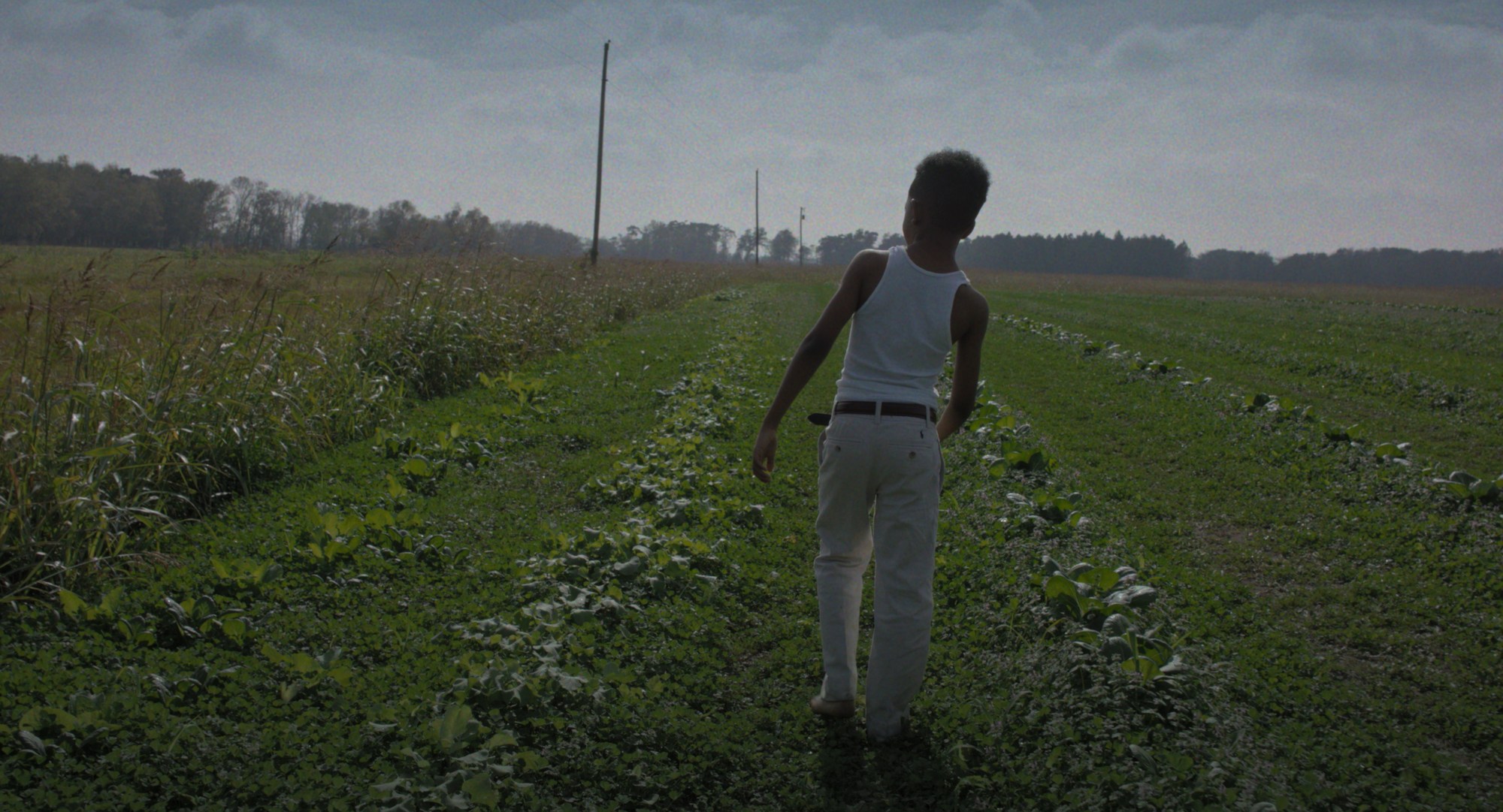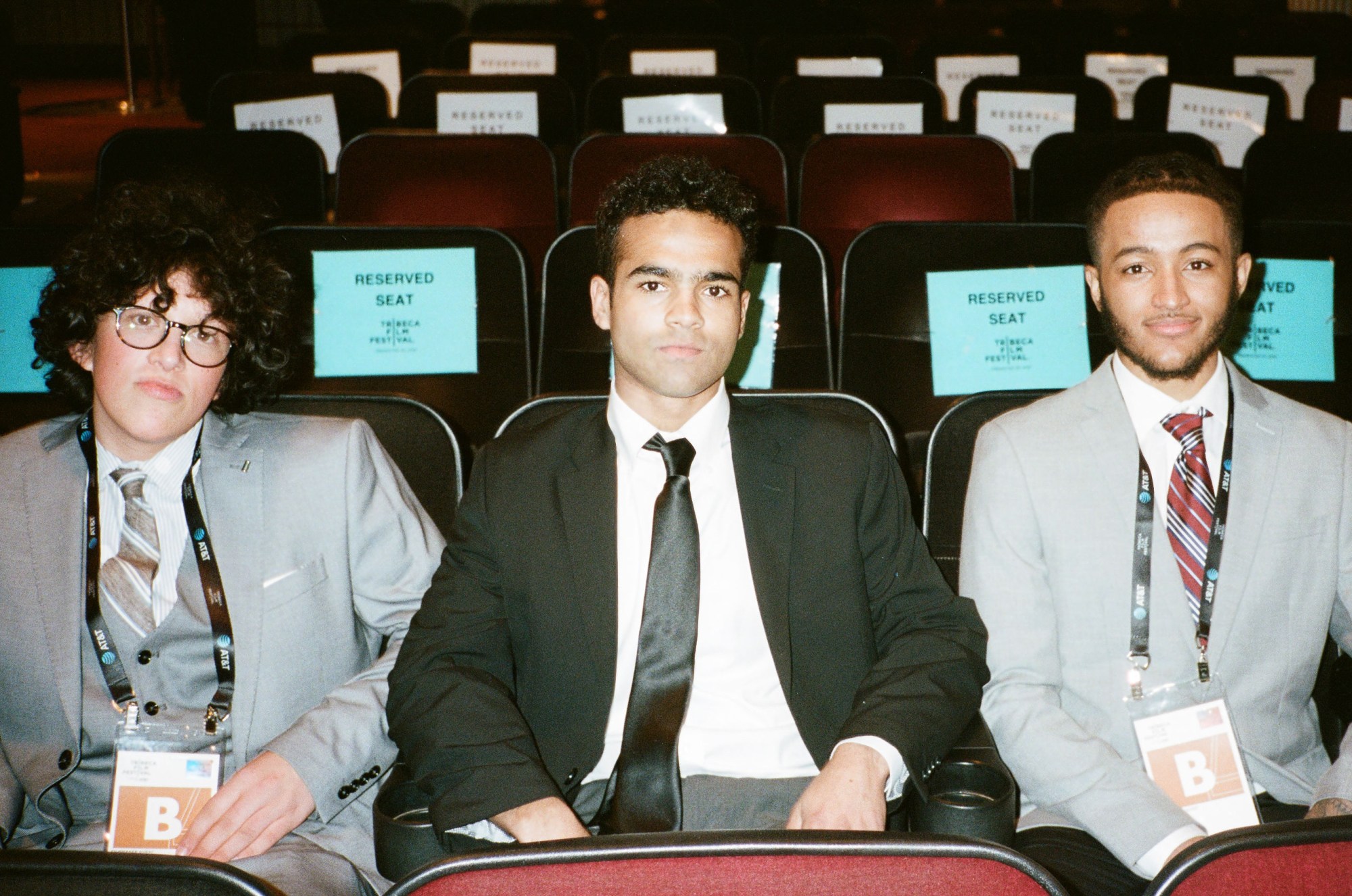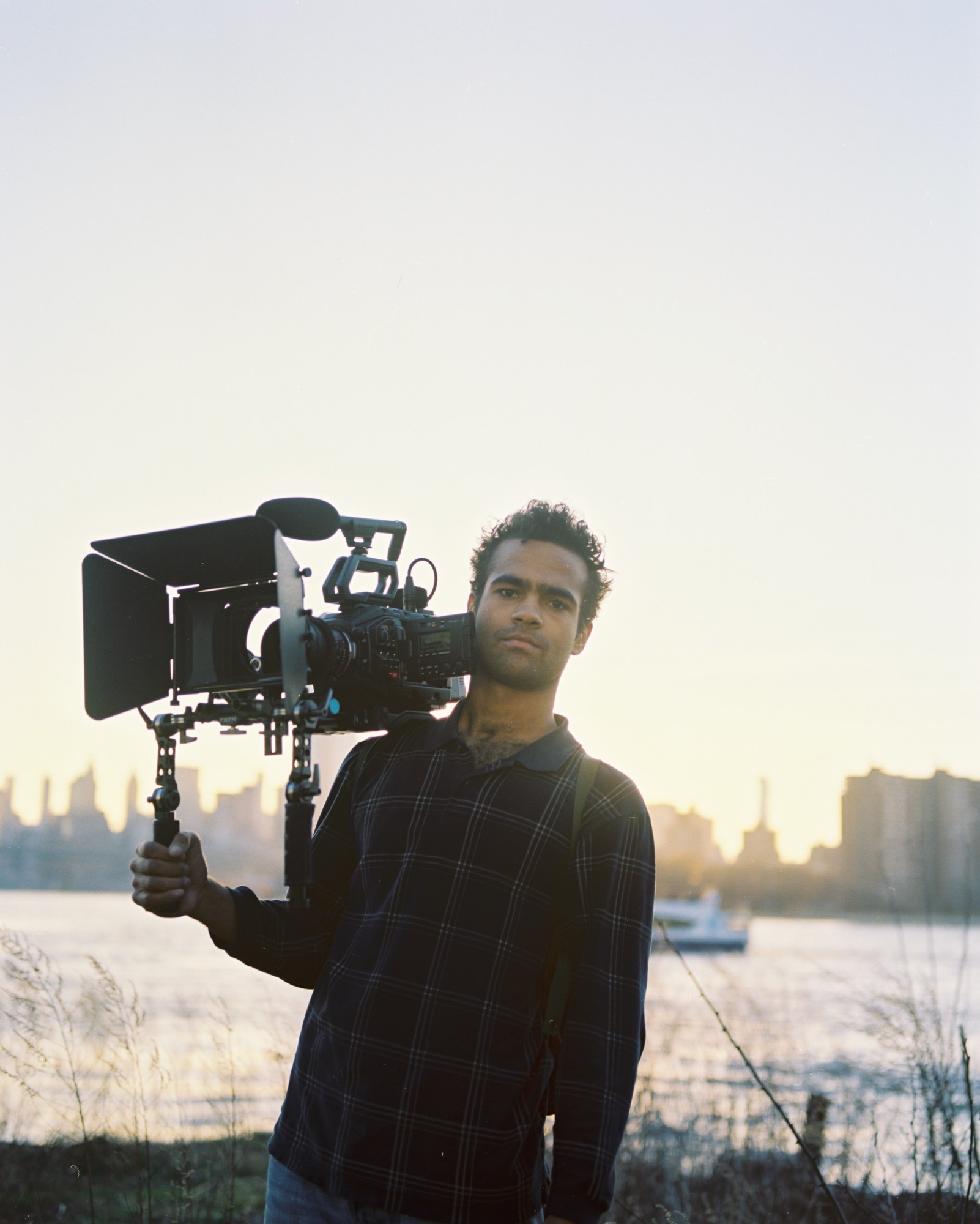It’s probably hard for a lot of filmgoers to imagine that a high school student could write and direct a debut feature film as confident, as deep, and as powerful as this year’s award-winning Burning Cane. After all, auteurs like Martin Scorsese and Spike Lee were nearly finished with their twenties when they made their stunning debuts — Terence Malik was 30. But having met director Phillip Youmans, who’s now 19, I can attest that when it comes to creative maturity and intention, age ain’t nothing but a number.
Although he wrote the film when he was 17, his youth spent in the black churches of the Bible Belt gave him more than enough fodder for the film. Through vivid imagery, naturalistic storytelling, and poetic editing, Burning Cane thrusts us into the lives of a small black community bound by a Christian faith that fails to provide any answers for their pain. Church-going matriarch Helen (Karen Kaia Livers) lives alone, except for her beloved dog, who is suffering hopelessly from an unconquerable case of mange. Meanwhile, (Wendell Pierce) Reverend Tillman’s wife is gone and he can’t stop drinking away his sorrows. And then there’s Helen’s son Daniel (Dominique McClellan), who can’t find work and feels hopelessly emasculated by his gainfully employed wife, Sherry. But there is one bright spot in Burning Cane: Daniel and Sherry’s son Jeremiah (Braelyn Kelly), whose wonder has yet to be disheartened by life’s unanswered prayers. Eventually, all their stories collide together in swift, calamitous violence.
I caught up with Youmans last month, a few weeks after he became the youngest director to have a film premiere at Tribeca. But he still seemed to be beaming from all the accolades Burning Cane had received. Deservedly, the movie took away three awards at the festival, including the coveted Founders Award, of which he was the first ever African-American recipient. And he got to hobnob with his heroes, like Barry Jenkins and Ava Duvernay.
During our conversation, Youmans talked to me a lot about responsibility, which is pretty atypical for young adult, but that is kind of his M.O. He openly pondered what it means to tell a story about religion as someone who’s not religious, or to present flawed black characters in a medium that historically demonizes black people. Of course, we didn’t get to the bottom of these questions. We couldn’t. But it did become apparent that his guiding light on these issues was a commitment to his own artistic truth. That idea seems kind of simple, but I think it’s rare among creators of any age or echelon. The fact that Youmans has it, says to me that we’ll have the pleasure of seeing many more powerful, singular works from him.
What was the forefront of your mind when you started writing the script for Burning Cane?
The biggest thing for me was working out the differences I had with the church I grew up in. And, more than anything, humanizing the sort of people I grew up with despite our ideological differences.
When did you realize that the Christian church just didn’t work for you?
It started pretty early on. There were a lot of questions that I would bring up in Bible study. My family members were raised in the rural Lowcountry, so they didn’t have the answers and I would frustrate them when I continually asked questions. But I also think there was something that was prodding at them, too. I don’t think everyone in the Baptist church hates gay people or believes that people who can’t donate their tithes should be shamed. But these are little things that I would pick up on as a kid.
How did your mom and dad respond to that growing sensibility?
I don’t know my father at all. But my mother and I are very close. Despite bringing us to church all the time, which I had something to say about, she really motivated us to be free thinkers and individuals. She grew up with a rigid, fundamentalist interpretation of Christianity, but she wanted me to be my own person. She’s been the most supportive person in my family.
Was there someone in your life who sort of put you on the path to making films?
My mother wanted to be a screenwriter, but my grandma told her to get a real job. Now she is physician. So a part of it might be that she didn’t want to repeat that cycle with me. She was always very encouraging of me because she knew this was all I really cared about. This was the stuff I was good at. So I started acting for a few years in some local productions and then I started filming my own shorts.
The portrayal of your characters is pretty raw. They’re not bad people, but they’re not exactly good either. How do you navigate the representation of blackness as a young black filmmaker?
It is important for us as black people to showcase ourselves in an honest, nuanced, fallible light. But I do think that sort of fallibility needs to come from a black filmmaker and a black perspective. Otherwise, it can turn into demonizing when it’s done as a caricature.

Was there anything you were afraid of when you finally finished this film?
My biggest fear was with the church. Some people could say what we did was sacrilege since we filmed it in a church with real churchgoing people who we represented in a fallible light. But I think it’s important for us to have a real real objective look at the church and our community, whether or not it’s a hindrance to our advancement.
Trying to capture the essence of the black church must have been a daunting challenge.
Yeah, there are things about the church I do appreciate, like gospel music, the communal nature, the interactions you have on a person to person level. With this film, I was afraid that it wouldn’t feel like you’re there on a Sunday morning. But I tried to step away from that because at the end of the day, I feel like I was approaching it from enough of a respectable place and everyone involved was doing the same thing.
Did you get any interesting reactions from religious folks?
One religious person said that the film made her want to “represent the kingdom better.” To her, that was a positive thing. But I was really afraid of what my family would think. They came up to the premiere from South Carolina, Georgia, Virginia, Louisiana… But they saw that my intention was not to shit on the church. This movie is about these people and their relationships with each other.
Was there a lesson you got in sharing your art with people whose judgement you dreaded?
I think the biggest thing is not living in fear and living your truth. I think I was more afraid, before the film. But now, I’m not afraid at all.

